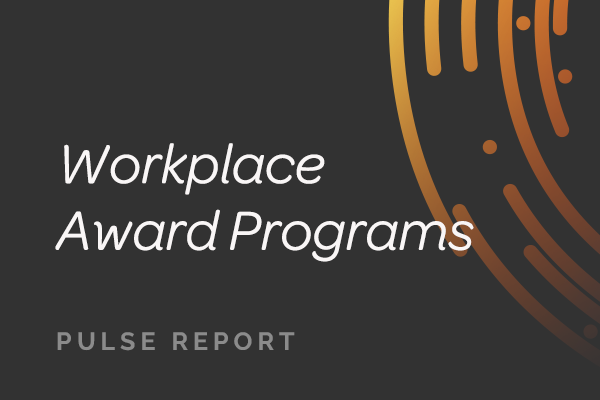

Employee recognition is one of the best tools managers have to engage, motivate and reward employees. When done well, recognition can create a sense of camaraderie and collaboration. As a leader, you set the tone for what the culture will be, you set the norms for how things are done, and you reinforce the behaviors that lead to success.
Desire for recognition is innate and people want to feel that their efforts are appreciated. As Maslow explained almost 80 years ago, after shelter and safety, people want to feel valued, respected and appreciated. Employees who feel valued are less likely to leave, are more productive, and go the extra mile for customers.
And according to Harvard Business Review, gratitude makes people feel valued, and compliments have been shown to mitigate the negative effects of stress on employee performance. Simple actions, such as verbal acknowledgement of work in progress, can be a great motivator and put wind in an employees’ sails when they most need it. Scientists are now revealing that verbal affirmations are processed in the brain in a similar way to financial rewards.
Recognition isn’t difficult. There are plenty of ways you can show appreciation. Here are three key principles for managers to keep in mind when recognizing others:
- Be timely. Recognize the activity and behavior in the moment or shortly thereafter. The longer you wait, the less impact your recognition will have.
- Be specific. Be sure to specify what the person did to earn the recognition and what the impact was. Make sure the reward matches the accomplishment.
- Be genuine and fair. For recognition to be meaningful, it needs to be authentic and earned on a level playing field.
Budget and Plan
It’s important to set aside budget to recognize your team. Decide what behavior to recognize, how best to identify the recipients, what frequency, and what forms the awards should take. In addition to financial rewards, non-monetary rewards are also powerful.
Whatever form you choose, remember the award should match the accomplishment. If someone does something big, such as save the company $100,000 or solve a big customer problem, a “thank you” note isn’t enough. Recognition for something at this level should match the benefit the company realized from the effort. In addition to money, put some thought into what the recipient would like. Maybe after a long project the best reward is time-off and a paid getaway. Or maybe they’d love a particular wine or dinner at a four-star restaurant. When you go the extra mile and put in the thought, it says more than “I see you and appreciate you.” It says, “I genuinely appreciate you by giving you something I know you’ll love.”
Recognition Conveys Values
As a leader, recognizing someone in public sends a message to everyone about what’s important to you and what success looks like. When you give an employee recognition, you don’t just motivate one person, you motivate many. If you do it well, it becomes part of your brand and makes you a leader for whom people want to do their best. The 7 Elements of an Enlightened Workplace serve to give structure and context around a culture of recognition:
Joy – Recognition makes people happy. People love to be noticed and appreciated for their work and for who they are as a person.
Progress – Companies that recognize people who embody behaviors that support the company’s success reinforce a culture of progress.
Value – Recognition acknowledges the unique talents and value that people bring to the table and thereby validates those contributions.
Meaning – Recognition brings meaning to an accomplishment by showing how one individual’s work contributed to the greater good and the company’s success.
Safety – Many organizations have safety as a core value, and when that is recognized, it is reinforced.
Care – Recognition facilitates a culture of appreciation by showing everyone that their good works will not go unnoticed.
Respect – Recognition respects the core human need to be appreciated and have one’s efforts noticed.




